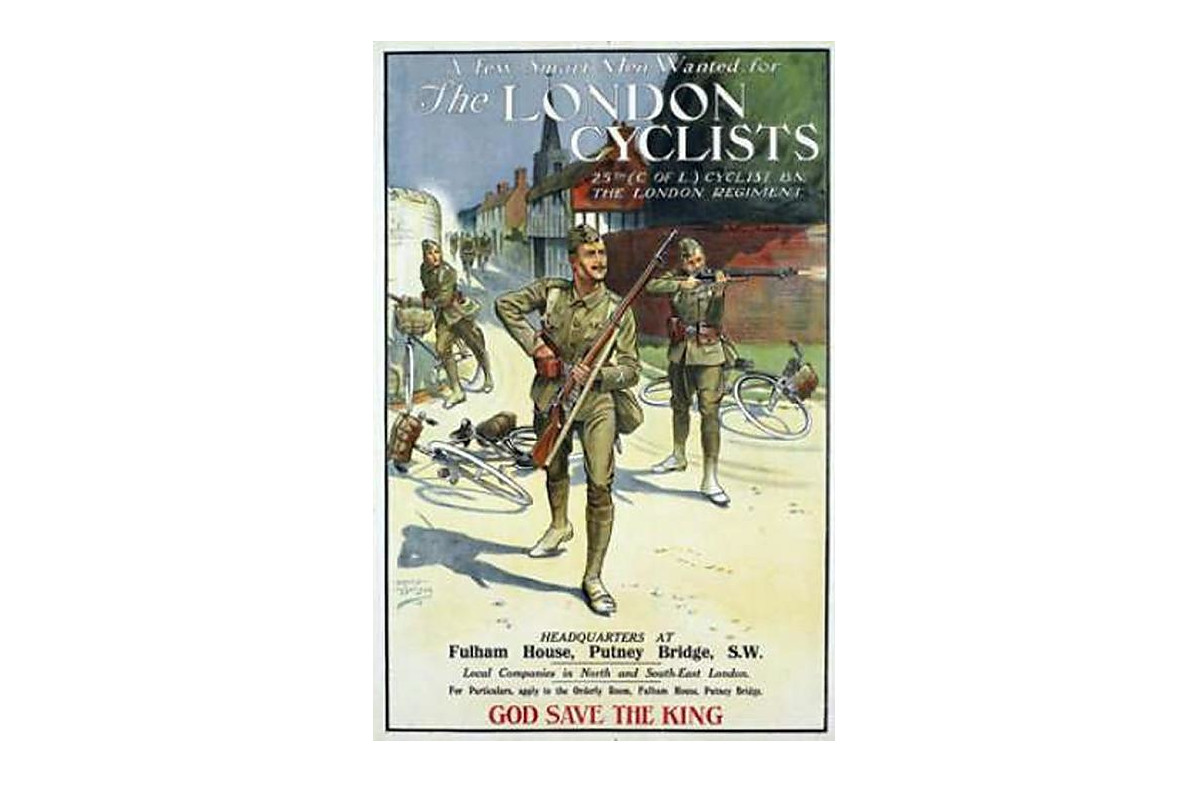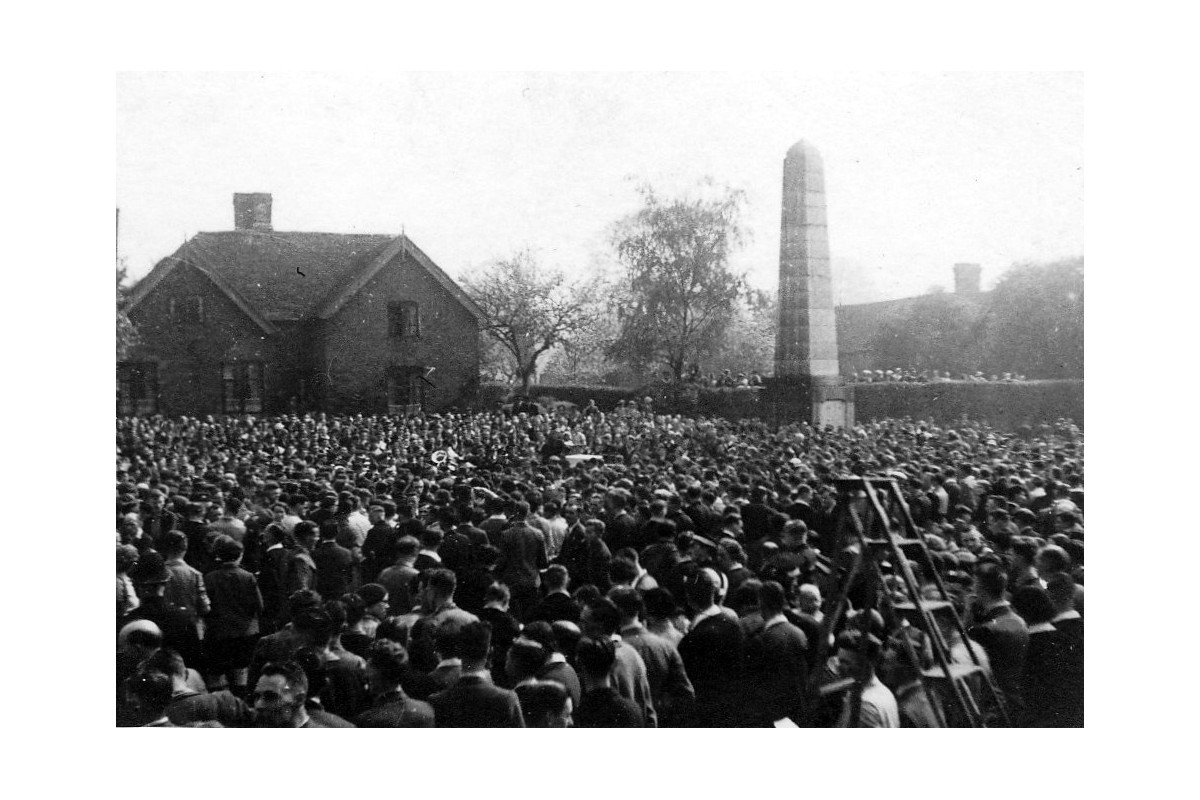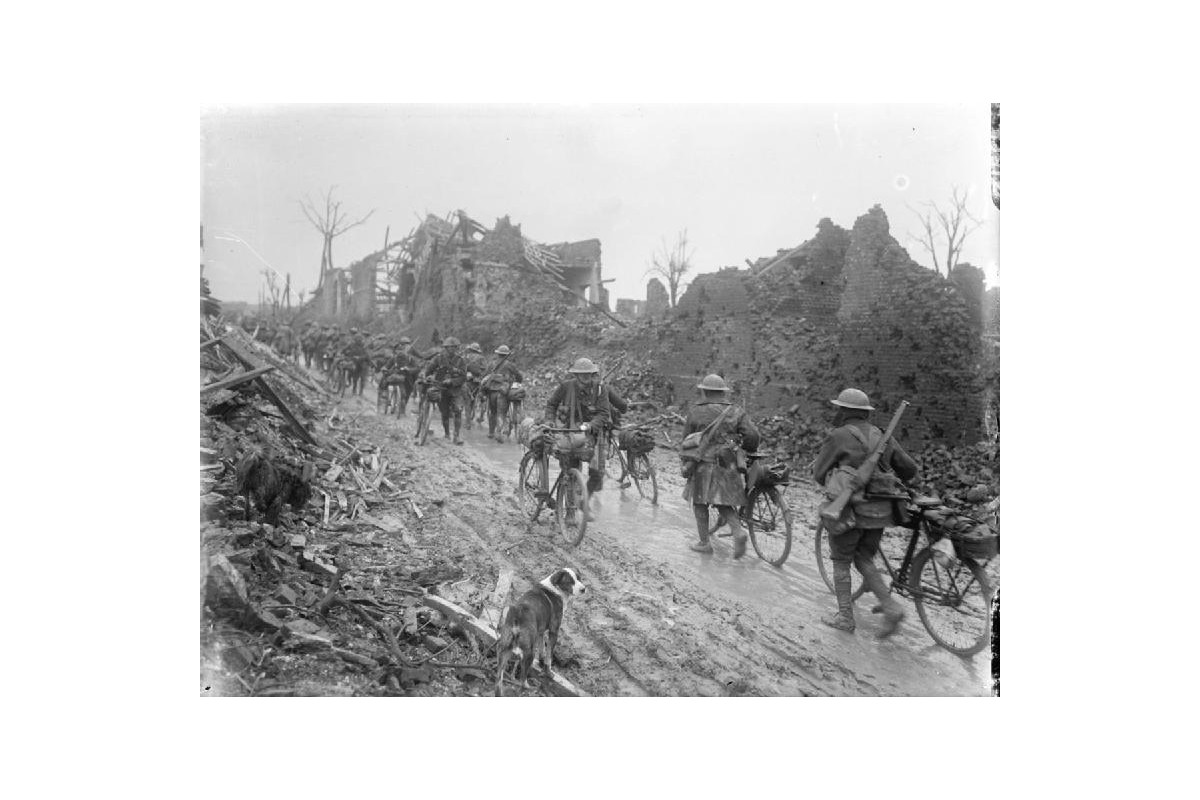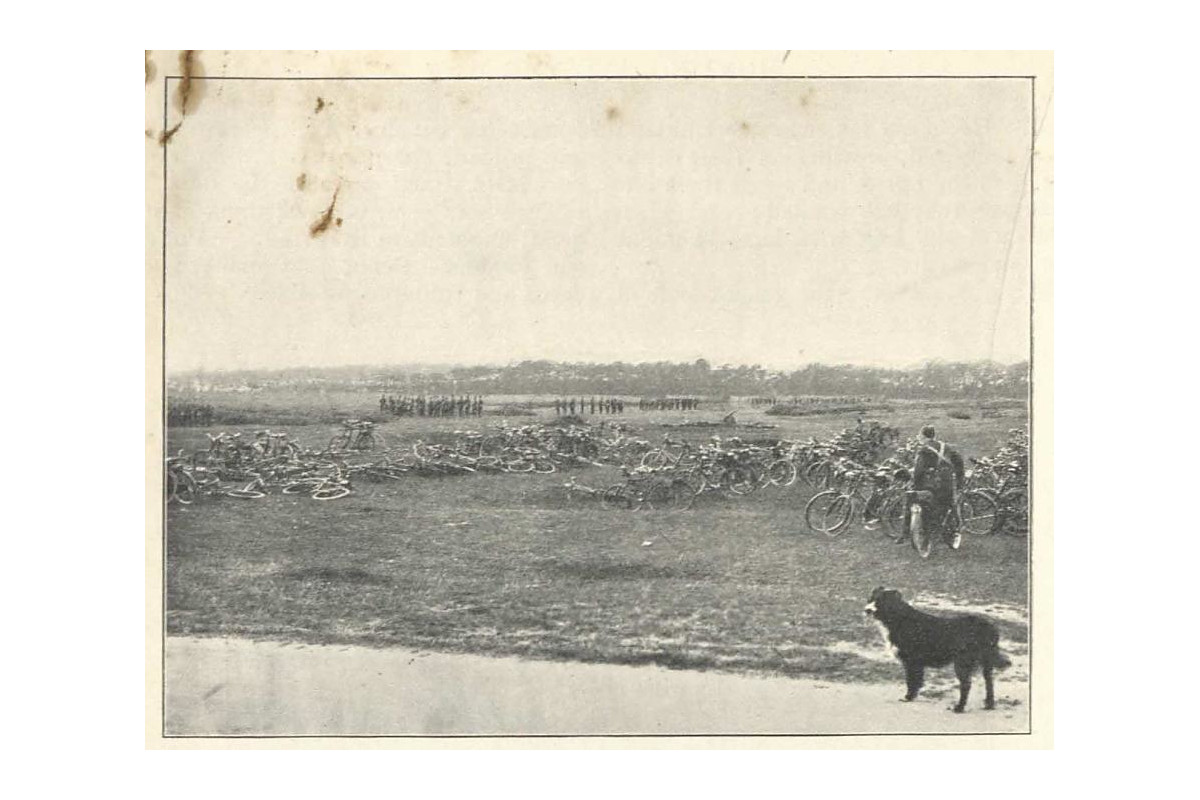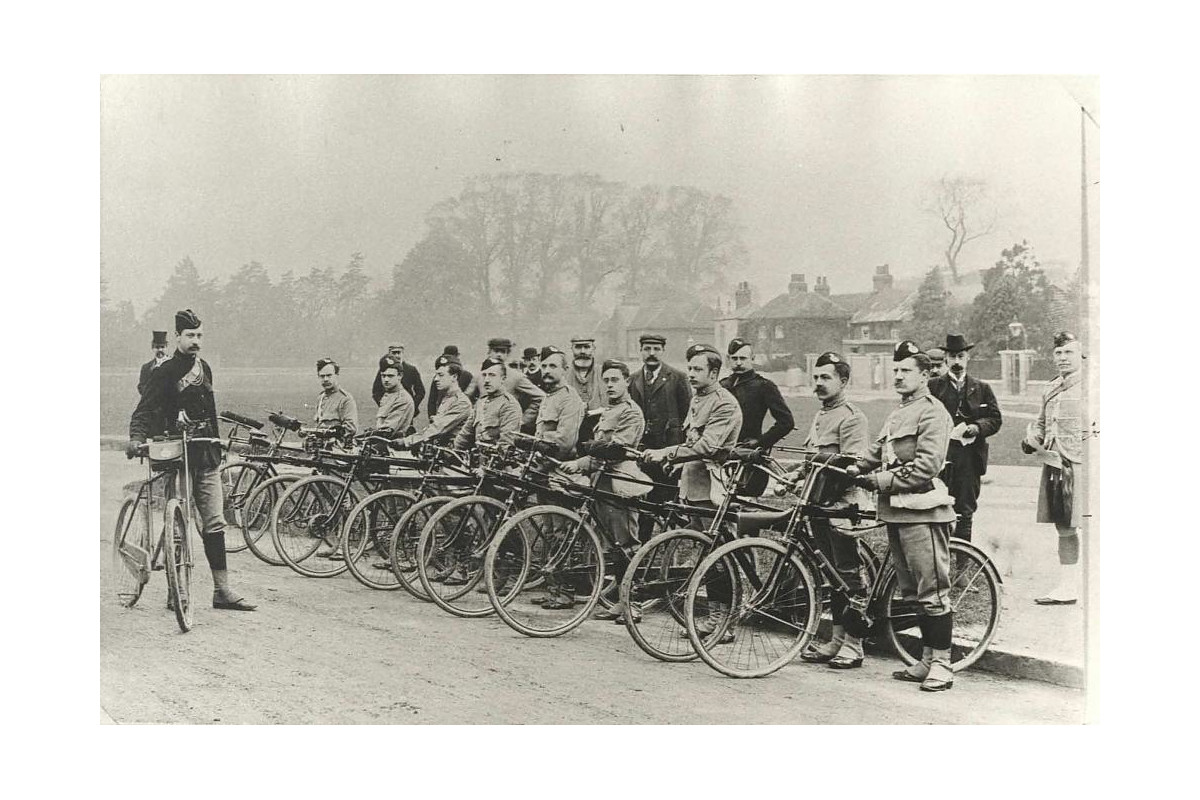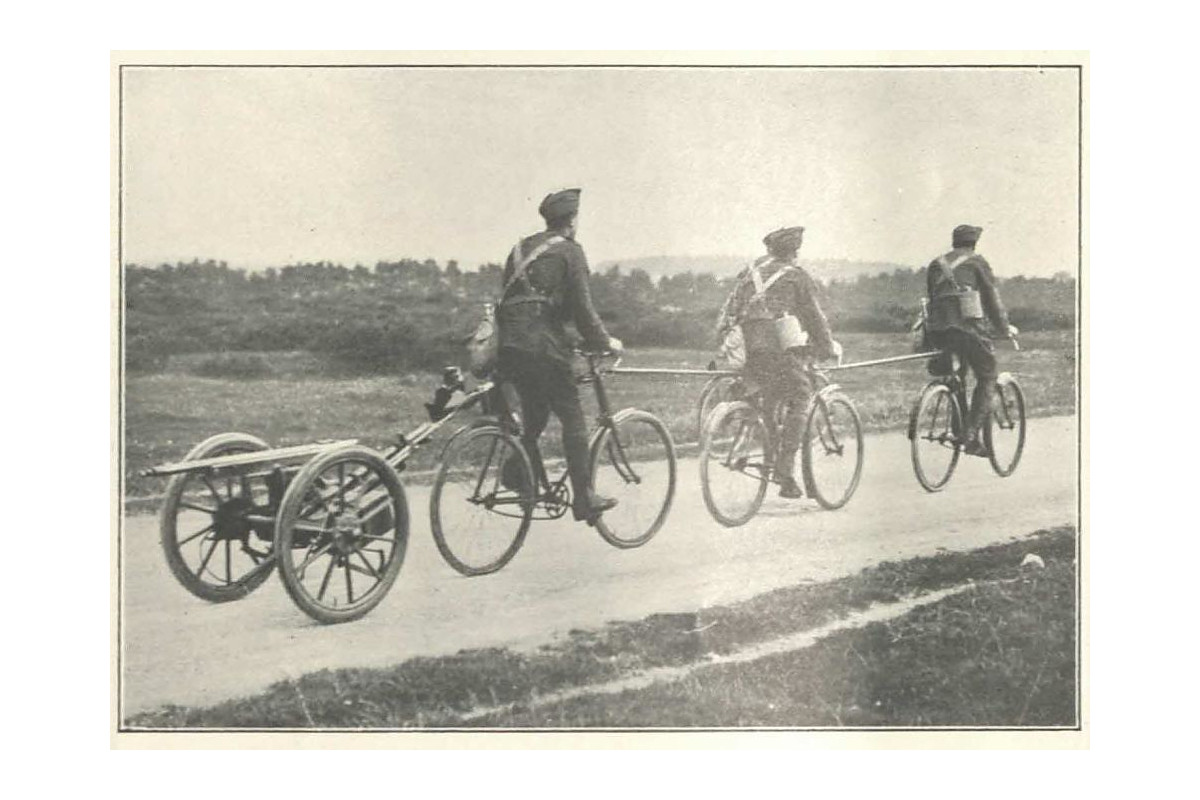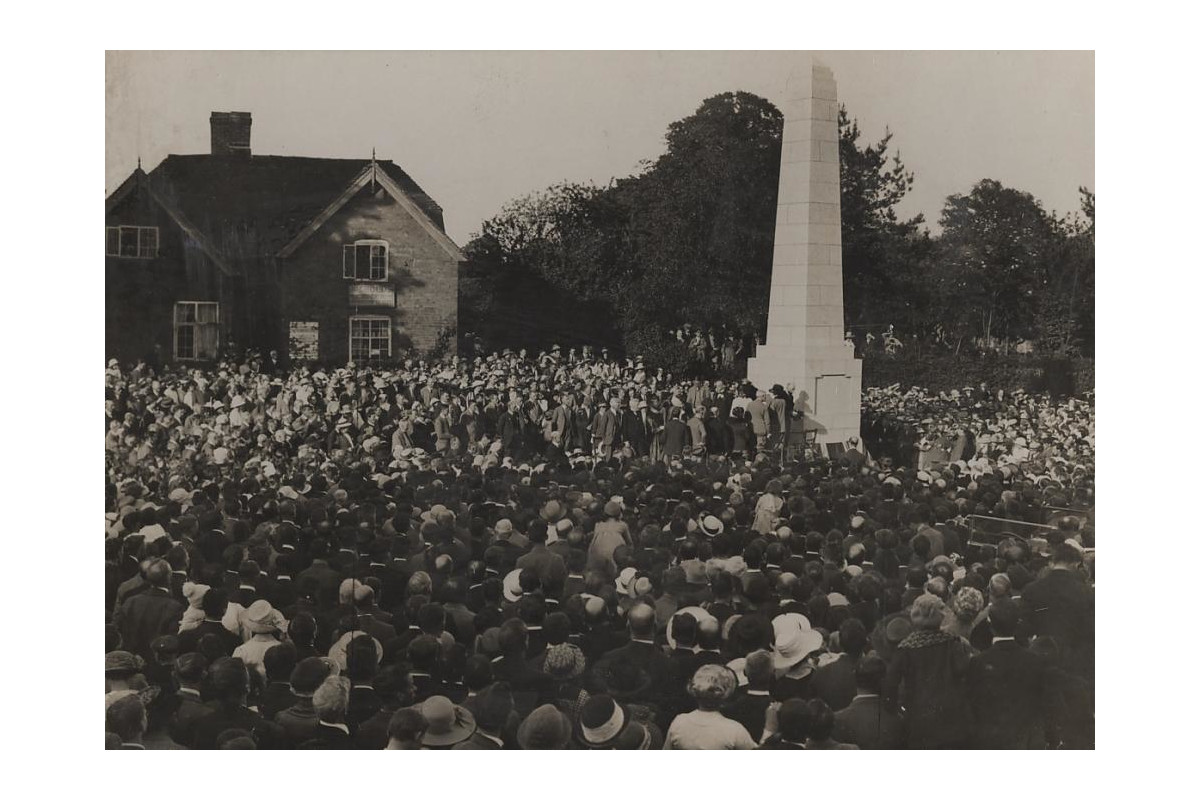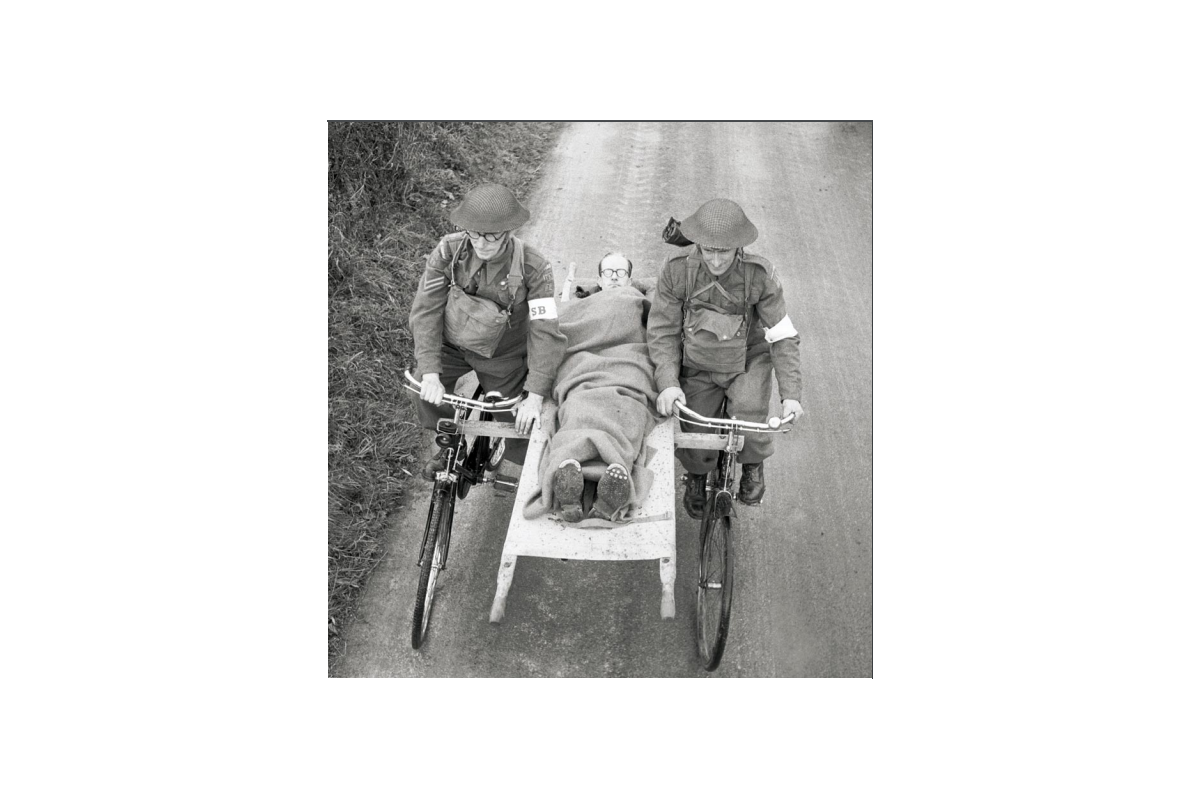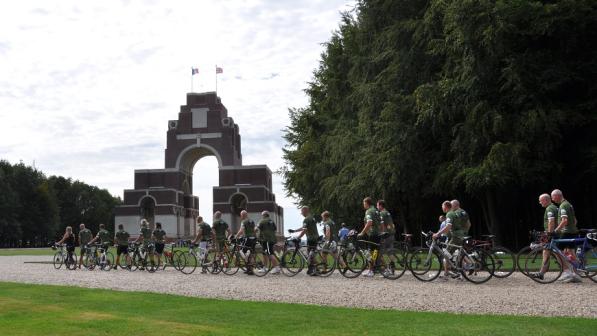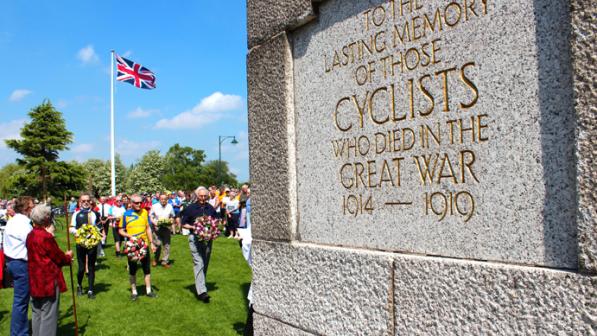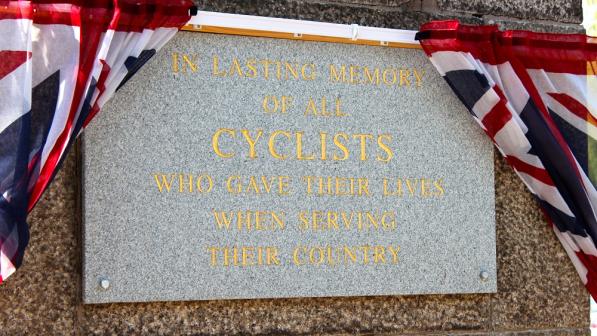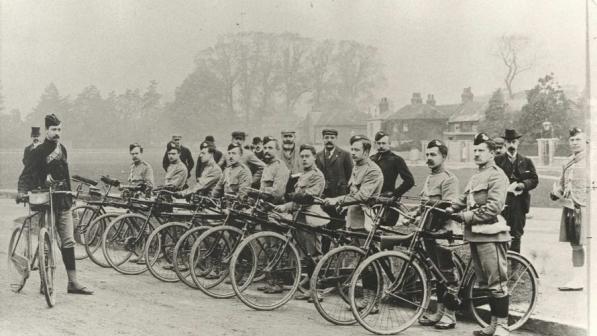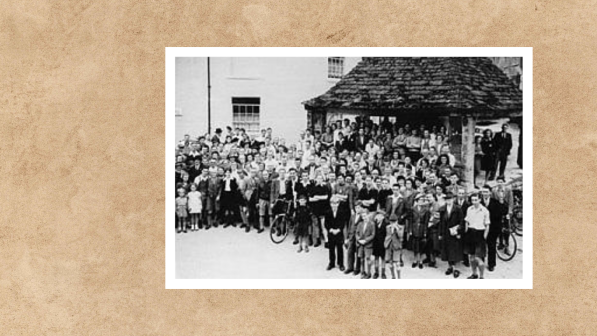Commemorating cyclists in conflicts on VE day

Since 1921, hundreds of cyclists from all over the UK have come together in the West Midlands village of Meriden - traditionally regarded as the centre of England - to pay tribute to fallen cyclists.
This year, the event was due to take place on Sunday 17 May but had to be cancelled due to the coronavirus pandemic.
Instead, there will be a virtual service taking place which will be available to view online from 8am.
Details are available on the Meriden Memorial event page.
Next year will mark the 100th anniversary of the first memorial service, which took place in 1921 - at which, the CTC Gazette estimated that the crowds numbered between 10 and 20,000.
Originally erected to honour the memories of all cyclists who died in World War I, the memorial now has two further inscriptions - one commemorating cyclists killed in World War II, and another added in 2013 ‘in memory of all cyclists who fought and died for their Country’.
Cyclists during the World Wars
- From Victorian rifleman to paratroopers with folders, the bicycle was often deployed when the world went to war. Jeremy Archer detailed some examples in a Cycle magazine article from 2011.
- Cycling UK members played a vital role in the battlefields of France as part of a cycling battalion during World War I. Speaking to Jim Fitzpatrick, the author of ‘The Bicycle in Wartime’, this special podcast from 2014 looks at the contribution made by cyclists in the Great War. It also delves into the articles and letters of the CTC Gazette during that time.
- The CTC Gazette in 1915 provides a fascinating and poignant insight into life in the early part of the Great War and the role CTC played in recruiting its members for active service in special cycling battalions.
